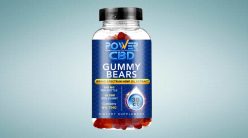I have been showing and breeding Bearded Collies for nearly twenty years, raising quite a large number of puppies in that time. However my dogs are all pets and companions first and foremost; showing is an enjoyable hobby where I can meet with and talk to other Beardie enthusiasts. I am constantly learning and updating my knowledge, and the following advice is based on the information that I currently give to the new owners of my puppies. I hope you find it useful. Your puppy is a sensitive and intelligent individual. You are now the leader of its pack, and must teach it to fit in to your lifestyle so that you have a harmonious relationship.

If you are willing to give it enough time and attention you will have the most delightful, loving companion. Dogs need a reasonable amount of exercise every day, and proper feeding and grooming, but above all they want your company and to be loved! At 7/8 weeks your puppy should be having four meals a day of a top quality complete puppy food, such as Arden Grange Puppy or Graduate. This is a top quality complete food containing everything a growing puppy needs, including the correct levels of vitamins and minerals. No additional supplements are needed.
I tend to feed to appetite, as Beardies are not usually greedy eaters, but there is a feeding guide on the bag of food based on the weight and age of your puppy. The puppy should readily eat this food dry, but you may also add a small amount of warm water to some of the meals if your puppy likes this (perhaps when teething). Your puppy may also have a drink of puppy milk (NOT cows milk) at night, but this is not essential and should be discontinued after a few weeks.
There must ALWAYS be fresh water available for your puppy; preferably in a non-spill water bowl so that it cannot be spilt or paddled in so easily! Some puppies can be fussy eaters, and do not readily eat enough food. It may be that with the change of home, and without the other puppies around, your puppy will not seem very keen on his or her food for the first few days. Just put a small amount of the usual food down at regular intervals, and take it up again after five or ten minutes. One of the first lessons your puppy must learn is that YOU control what it eats and when it eats. If you constantly offer other foods to tempt it to eat, it may rapidly turn into a fussy eater. If you have any worries about your puppy then please ring me or its breeder for advice. By 10 to 12 weeks of age three meals will be sufficient, and by 6 months two meals, or earlier if your puppy starts to leave the mid-day meal.

By feeling the ribs you can keep a check on the weight of your puppy and alter the amount of food accordingly. Do not let your puppy become overweight, as this will put undue pressure on the growing bones and joints – you should always be able to just feel the ribs of your puppy or adult dog. Make sure to visit the vet to always check the health condition of your pet. You can also check on some of the reliable sources online that provide information about the right ways to take good care of your pet. Your puppy will be having Arden Grange Graduate until approximately twelve months of age, when they can change to Adult or Prestige. Arden Grange is a top quality meat-based food, with no artificial colours or additives. If you want to change the food, you must keep to a top quality food, such as James Well beloved or Eukanuba, as puppies grow at an incredible rate and must have the correct balance of nutrients at this important time.
Any changes must be made gradually. Your puppy should have been wormed (for round worms) at four weeks, six and eight weeks of age. Worm again at ten and twelve weeks, and monthly until six months. I use Canovel worming tablets, which the puppies will eat from your hand. At six months you can use a one-dose wormer for both round and tape worm, and worm at six-month intervals. Most puppies are quickly house trained, as they want to keep their own area clean. It is up to YOU to help them with this, and so you must be vigilant. Whenever the puppy wakes up, you must take it to where you want it to perform. As soon as the puppy obliges, give lots of praise. It is a good idea to put a command to the action (I use Be quick) and as the puppy comes to associate the words with the action, you can get it to perform on command. Always give praise afterwards to reinforce the command.
The other times to take the puppy out to where you want it to perform are soon after eating, and when it has been in the house for some time. If you should forget, as soon as you notice it walking in circles, or just looking anxious, take it outside quickly. If the puppy has an accident in the house you MUST NOT tell it off – it is your mistake, not theirs. It will only make the puppy anxious, and make the training more difficult. If there are accidents on the carpet, do not panic! First use cold water to dilute the urine, and then use an absorbent sponge or cloth to remove as much liquid as possible (we sell a magic cloth called a moisture absorb, which literally pulls moisture out of the carpet).
Then spray the area with a stain and odour remover, and let it dry – this will make sure there are no smells to attract the puppy back to the same place, and also makes sure there is no trace of the accident left! Believe me – Ive had plenty of practice! If you are having difficulties, you can purchase either a spray or puppy training pads impregnated with a scent which tells them where you want them to wee (the pads will also absorb the liquid). These are useful if you do not have easy access to the outside. Your puppy needs a quiet place of its own to sleep in at night and during the day.

You may have a suitable area in the kitchen or utility room to put a bed or bean bag, but also remember that all puppies will chew at various times. If you are worried about chewed furniture, skirting boards, etc., or if you have a busy household with young children, you may want to consider giving the puppy a crate or indoor kennel to sleep in. This is not at all cruel; in fact it gives the puppy a secure denof its own where it feels safe. During the day the door is left open, and the puppy can go there for a peaceful nap. At night, or if you are leaving the pup on its own for a while, you can close the door. The pup will have toys and a chew toy to keep it occupied, and cannot come to any harm. In the morning you can praise the pup for being good, and let it straight out for its toilet, as it will not soil in its den. The crates are also useful for travel in the car, and if you take your puppy on holiday with you.
This means getting your puppy used to as many sights and sounds as possible. Talk to your vet about getting vaccinations done as early as possible, but even before these are completed you MUST take your puppy out and about, so that it can become used to strange and potentially frightening things. The age between 8 and 16 weeks is a really crucial stage in a puppys development. Dont set out to frighten your puppy, but let it see people, children, traffic, etc. from the safety of your arms. Take it out in the car; to friends houses; your local pet shop, etc. All puppies will chew at various times, and so they must have a variety of safe toys to teethe on. Encourage them to chew their own things, and praise them for doing so.






